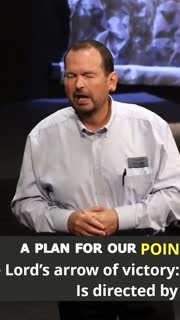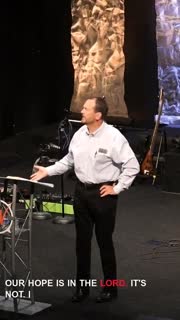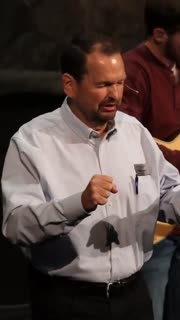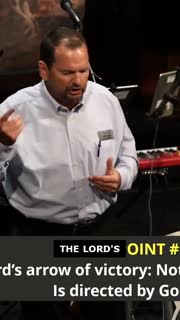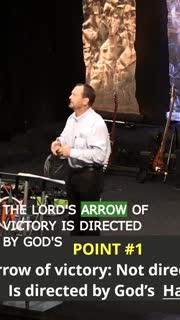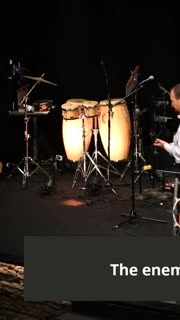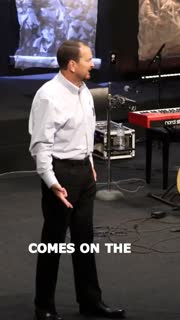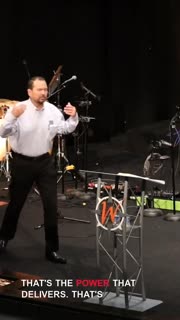Hope That Delivers: Trusting God's Perfect Plan
Devotional
Sermon Summary
Bible Study Guide
Sermon Clips
### Quotes for Outreach
1. "We have a plan for our life. We have directions. We know what's going to happen next. And that's where we are headed. This past week, just one of those crazy weeks, my mother-in-law has been with us for about a month and we were getting ready for my wife to take her back to Kentucky, stay with her a couple of weeks. Then we had a wedding there and it's all planned out. Last Wednesday, my wife had an unexpected surgery." [34:56] (37 seconds)
2. "Our hope is in the Lord. It's not. I know these physical bodies are going to quit on us. That can't, our health cannot be our hope. Our finances cannot be our hope. Nothing can be our hope except Jesus Christ." [54:57] (20 seconds)
3. "Everything, everything in this world has been affected by the fall, by sin, everything. Your eyes up. Get them on Jesus. You might have even received, and I don't know this about anybody in here, but you might have even received word recently that you're on your way out, that you have some disease. I don't know that, but if you have, man, as difficult as that will be for you and for your loved ones, you're about to step into glory. You're about to get promoted." [56:33] (45 seconds)
### Quotes for Members
1. "The Lord's arrow of victory is not directed by your aim. And he says to the king, take a bow and arrows. I've never had anybody come to my office. And this is something I did with them ever. Never crossed my mind. Take the bow and arrows. So the king gets a bow and arrows. Elisha said to the king of Israel, put your hand on the bow. So the king put his hand on it. And Elisha put his hands on the king's hands. Elisha said, open the east window. So he opened it. Elisha said, shoot. So he shot. And Elisha said, the Lord's arrow of victory." [33:04] (44 seconds)
2. "The Lord's arrow of victory is directed by God's hand and his plan. For our life. Do you remember when I preached here before? And I really like you to encourage me by saying, amen. That was one of those points right there. The Lord's arrow of victory is directed by his hand on our life. And we see things all the time. And we wonder why did that happen? Why did God allow that to happen? And I can't answer all of those questions. I just know that he has. He has promised. He has promised that he will take all the things in our lives and he will work it all together for good, which is for his glory and to make us more like Jesus." [36:41] (50 seconds)
3. "Sometimes we do sort of the same thing. We want to live our life however we want to live it, but then we want God to give us great victory. And we can even think, stick with me now, we can even think that church, if I will just go to church, I'll be right where God wants me and that will bring me victory. Or if I don't do this as much, then I can have great victory. If I don't do this as much, then I can have great victory. And we're constantly putting our hope in the wrong place. There's only one place to put our hope." [45:49] (51 seconds)
4. "When Elisha comes on the scene, when he becomes the prophet of God, he sees the very heavens open and this, this taking away of Elijah. And it just spurs him to cry out about the power of God. And that, that is the power of God. It was the power that Elisha had on him as he was the prophet for Israel. So that is your B, Elisha's power, hope that delivers death of Elisha, Elisha's power." [51:17] (32 seconds)
5. "That's the power that delivers. That's the hope that delivers when our hope is in God, not in anybody, not in anything. It's only in God. Everything else flows out of that relationship with God and living with our hope firmly placed in him, walking with him, living with him, reverencing him, glorifying him in every part of our lives. You'll never, I will never, we will never have the kind of power that was on Elisha living ordinary lives." [53:05] (43 seconds)
Ask a question about this sermon
1. "We have a plan for our life. We have directions. We know what's going to happen next. And that's where we are headed. This past week, just one of those crazy weeks, my mother-in-law has been with us for about a month and we were getting ready for my wife to take her back to Kentucky, stay with her a couple of weeks. Then we had a wedding there and it's all planned out. Last Wednesday, my wife had an unexpected surgery." [34:56] (37 seconds)
2. "Our hope is in the Lord. It's not. I know these physical bodies are going to quit on us. That can't, our health cannot be our hope. Our finances cannot be our hope. Nothing can be our hope except Jesus Christ." [54:57] (20 seconds)
3. "Everything, everything in this world has been affected by the fall, by sin, everything. Your eyes up. Get them on Jesus. You might have even received, and I don't know this about anybody in here, but you might have even received word recently that you're on your way out, that you have some disease. I don't know that, but if you have, man, as difficult as that will be for you and for your loved ones, you're about to step into glory. You're about to get promoted." [56:33] (45 seconds)
### Quotes for Members
1. "The Lord's arrow of victory is not directed by your aim. And he says to the king, take a bow and arrows. I've never had anybody come to my office. And this is something I did with them ever. Never crossed my mind. Take the bow and arrows. So the king gets a bow and arrows. Elisha said to the king of Israel, put your hand on the bow. So the king put his hand on it. And Elisha put his hands on the king's hands. Elisha said, open the east window. So he opened it. Elisha said, shoot. So he shot. And Elisha said, the Lord's arrow of victory." [33:04] (44 seconds)
2. "The Lord's arrow of victory is directed by God's hand and his plan. For our life. Do you remember when I preached here before? And I really like you to encourage me by saying, amen. That was one of those points right there. The Lord's arrow of victory is directed by his hand on our life. And we see things all the time. And we wonder why did that happen? Why did God allow that to happen? And I can't answer all of those questions. I just know that he has. He has promised. He has promised that he will take all the things in our lives and he will work it all together for good, which is for his glory and to make us more like Jesus." [36:41] (50 seconds)
3. "Sometimes we do sort of the same thing. We want to live our life however we want to live it, but then we want God to give us great victory. And we can even think, stick with me now, we can even think that church, if I will just go to church, I'll be right where God wants me and that will bring me victory. Or if I don't do this as much, then I can have great victory. If I don't do this as much, then I can have great victory. And we're constantly putting our hope in the wrong place. There's only one place to put our hope." [45:49] (51 seconds)
4. "When Elisha comes on the scene, when he becomes the prophet of God, he sees the very heavens open and this, this taking away of Elijah. And it just spurs him to cry out about the power of God. And that, that is the power of God. It was the power that Elisha had on him as he was the prophet for Israel. So that is your B, Elisha's power, hope that delivers death of Elisha, Elisha's power." [51:17] (32 seconds)
5. "That's the power that delivers. That's the hope that delivers when our hope is in God, not in anybody, not in anything. It's only in God. Everything else flows out of that relationship with God and living with our hope firmly placed in him, walking with him, living with him, reverencing him, glorifying him in every part of our lives. You'll never, I will never, we will never have the kind of power that was on Elisha living ordinary lives." [53:05] (43 seconds)
